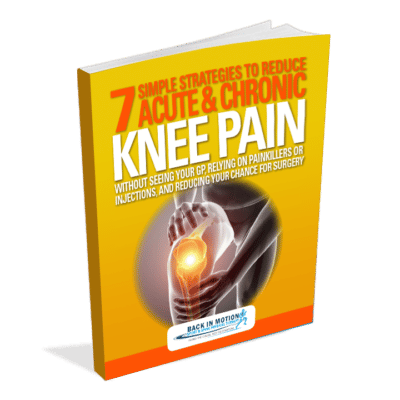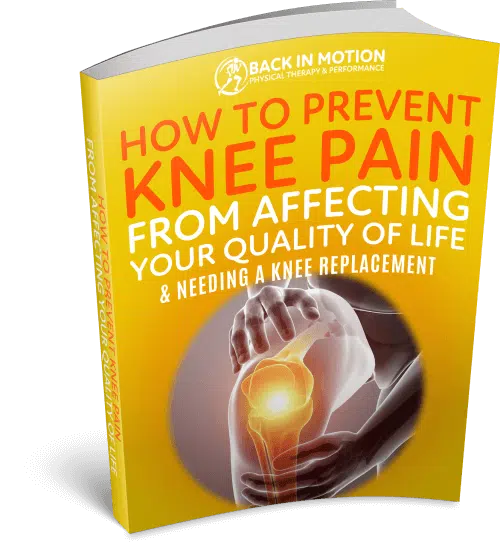Everything You Need To Know About Knee Replacement Physical Therapy In Fort Myers, FL!
If you have had a knee replacement surgery, chances are very high that you will feel far less pain and allows you to move around much better than before. After you knee replacement surgery, your doctor might refer you to physical therapy. So, don’t brush it off! Your physical therapist will use several treatments and exercises to help minimize your pain and enhance your overall functional mobility.
Rehabilitation begins as soon as your surgery is over and your doctor will want you to start walking using an assistive device with the help of a physical therapist within the first 24 hours. Every day your physical therapist will guide you through exercises, provide massage to alleviate the pain, and use hands-on care to help with mobility. Moreover, your therapist will also tell you how to get in and out of your bed and move around with the help of an assistive device, like a walker, or a cane and other daily routines.
It is very important for you to push yourself to o as much as possible each day. So, read on to learn the things you can expect from a physical therapist during after your knee replacement surgery:
- Day 1
Rehabilitation kick-starts almost immediately after you wake up from surgery. Your physical therapist will provide you exercises that will help in strengthening your muscles and guide you through them every day. Your physical therapist will demonstrate how to get in and out of your bed and move around with the help of a walker or a cane. Your physical therapist will also help discuss your home environment and will help you get set up with a continuous passive motion machine.
- Day 2
Your physical therapist might ask you to walk for short periods with the help of an assistive device. They might also request you to use a regular toilet instead of a bedpan and might also ask you to try to climb a few steps. If you’re in pain or have stiffness, they should provide hands-on care to help alleviate your symptoms and increase your mobility.
- Discharge From Hospital Into Outpatient Physical Therapy
By this time, your doctor will shift you from prescription-strength painkillers to low-dose pain medications. Now your physical therapist might ask you to go on longer walks, climb up and down a flight of stairs, and reduce the use of a walker, or a cane.
- Discharge through Week 3
By now you should be able to move around freely while experiencing reduced pain by the time you are back home. Now you are likely to rely less on an assistive device. You should be engaged in a daily routine of exercise as prescribed by your physical therapist.
- Weeks 4-6
If you’re staying on your exercise and rehab schedule, you will notice a considerable change in your knee. Now, your physical therapist might ask you to on longer walks and avoid using an assistive device. By the end of this period, you might be able to go for a half mile or farther on your walks. However, you must consult your physical therapist to know by when you will be able to return to work and regular activities. If your mobility is still lacking, your physical therapist will provide manual therapy to mobilize the joint. This is important during this period of time.
- Week 7-11
At this point of time, you should be well on the road to speedy recovery. You might be having no problem in walking a couple of blocks without the use of any assistive device. Your physical therapist will be monitoring your exercises and perhaps modifying them as your knee improves and you are able to move your knees more freely. Remember, this period is very crucial for long-term success.
- Week 12
If you have been committed to rehab, it is likely that you are up and beginning to enjoy activities like walking, swimming, and bicycling. It is very important to continue with the exercises as prescribed by your physical therapist and avoid getting engaged in high-impact activities that could damage your implant or the surrounding tissues. By this point, you should be experiencing a considerable decrease in your pain.
Then, slowly and gradually your pain will subside. But it is very important to stay in touch with your doctor and your physical therapist to go for periodic checkups to make sure that your knee is continuing to work properly.
Want to See How We Can Help You?
Claim A Free 20 Minute Discovery Visit….
Things to Consider when Looking for a Physical Therapist For Your Knee Replacement Therapy…
Physical therapy can play a vital role in rapid recovery from injuries, surgeries, prevention of injuries and relief of pain. Therefore, choosing an excellent physical therapist can make all the difference when it comes to a patient’s outcome:
- Manual Skills
A good physical therapist makes use of his/her hands to mobilize, produce motion and enhance function that cannot be achieved by stretching, strengthening or other types of exercises. This is what really expedite the healing process and separates the good from the great physical therapists.
- Good Diagnostic Skills
Physical therapists spend more time with patients, and see issues from their training perspective. The diagnostic skills of physical therapists help in designing total body recovery and rehabilitation programs.
- Amazing Communication Skills
Regular physical therapy sessions can only be satisfying if the flow of information is smooth and informative. Therefore, choose a physical therapist that understands you well and helps you accordingly.
- Apt Fitness Training
Physical therapy is more than just exercise to recover from an injury or surgery. Fitness training to avoid injury, at the time of recovery determines the probability of a patient achieving a better condition than it was before the injury.
Conclusion
Remember, physical therapy is a vital part of recovery after your surgery. Not only can it heal you faster, but also enhances your flexibility and range of motion, and also helps you manage pain levels without excessive use of medications. Physical therapists work hard helping their patients gain back function so that the patient can begin enjoying pain-free life again. So if you or your loved one has a knee replacement surgery scheduled, consult a good physical therapist about your post-surgical care plan. Depending on the type of surgery and the individual, specified treatments need to be used for you to regain function and get back to your active lifestyle.
To see all the different ways we can help you with your knee pain, be sure to click here.
If you’re looking to inquire about cost and appointment availability you can do so by going here.

GET YOUR FREE REPORT
7 Simple and Fast Strategies to Reduce Achy Acute and Chronic Knee Pain
About Author: Dr. Scott Gray
Dr. Scott Gray is an internationally recognized and expert physical therapist specializing in sport, athletic, and back and neck injuries. He is the inventor of a revolutionary form of treatment called the GRAY METHOD. This type of treatment unlike others, addresses the CAUSE rather than just your SYMPTOMS with a full body approach. For more information on how to ease or overcome your injury, go to www.backinmotionsspt.com.










